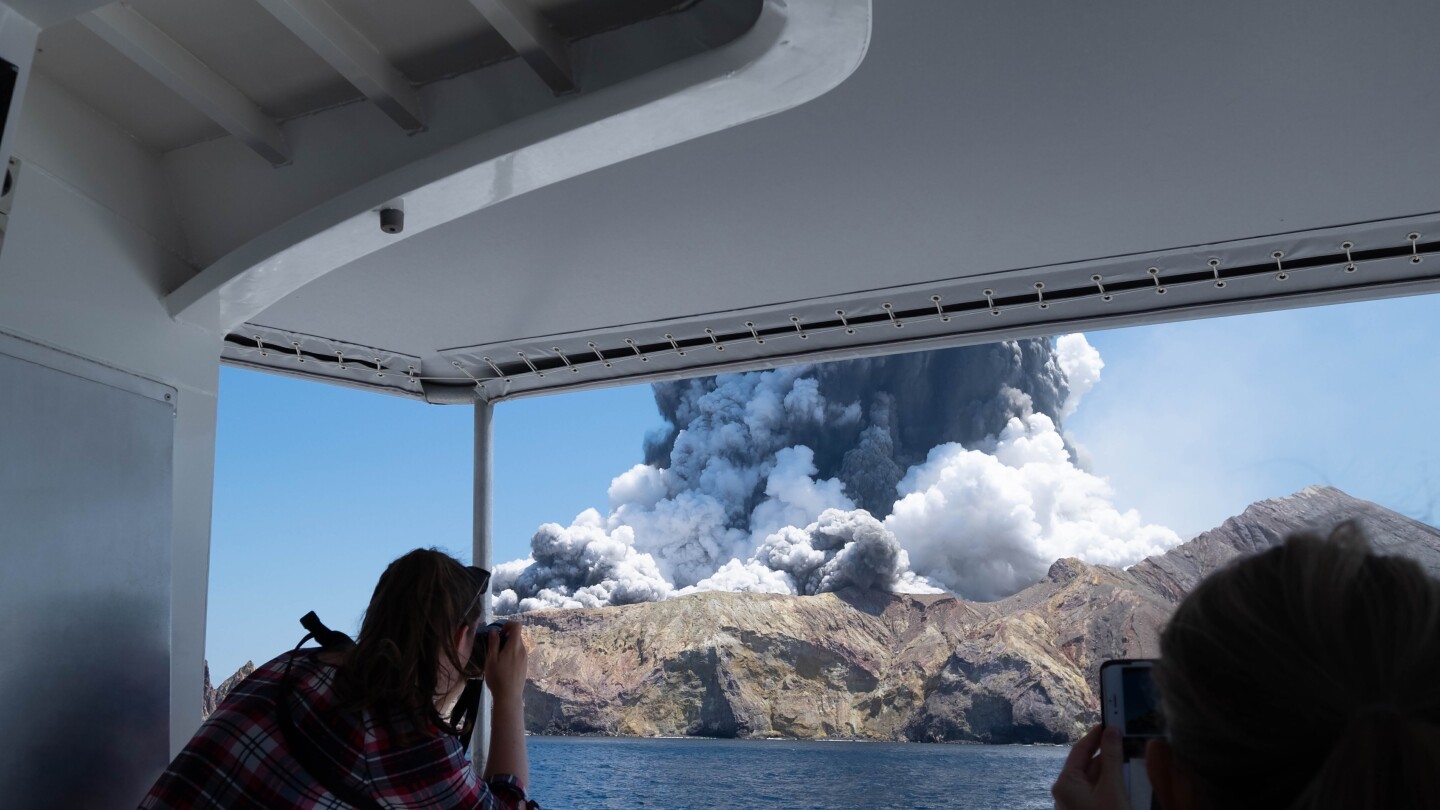WELLINGTON, New Zealand (AP) — Tour booking agents and managers of a New Zealand island where a volcanic eruption killed 22 people in 2019 were ordered Friday to pay nearly $13 million (US$7.8 million) in fines and reparations.
The holding company of the island’s owners, a boat tour operator and three companies that operated helicopter tours had been found guilty of safety breaches at a three-month trial last year.
White Island, the tip of an undersea volcano also known by its Indigenous Māori name Whakaari, was a popular tourist destination before the eruption. There were 47 tourists and tour guides on the island when superheated steam erupted on Dec. 9, 2019, killing some people instantly and leaving survivors with agonizing burns.
“There is no way to measure the emotional harm survivors and affected families have endured and will continue to endure,” Judge Evangelos Thomas said during the sentencing in an Auckland court. “Reparation in a case like this can be no more than token recognition of that harm.”
“No review of prevailing reparation levels conducted by any other court contemplates emotional harm of the scale and nature that is present in this case. Greater awards are appropriate.”
Previously, a three-month, judge-only trial against 13 groups had seen six plead guilty and six other having charges against them dismissed. The charges were brought by regulators and carried fines as a maximum penalty.
The final remaining defendant in the trial was Whakaari Management Ltd. which was found guilty on one charge in October last year.
At Friday’s sentencing hearing, Thomas was particularly scathing towards the shareholders of WML, the holding company for the island’s owners: Andrew, James and Peter Buttle, who he said had “appeared to have profited handsomely” from tours to the island, despite the company claiming no assets or a bank account to hold funds.
While conceding he could not make orders against the individual owners, he said the ruling did not relieve WML from its $636,000 fine or its share of the reparations for the victims and their families of $2.97 million.
“This case, like many others, sadly reveals how simply corporate structures can be used to thwart meaningful responses to safety breaches,” Judge Thomas said. “There may be no commercial basis for doing so, but many would argue there is an inescapable moral one.”
“We wait to see what the Buttles will do. The world is watching.”
The specific reparation sums awarded to victims and the families of those who died was suppressed for publication by the court.
The last remaining defendant, New Zealand scientific agency GNS Science, the government agency that monitors volcanic activity, was fined $33,000 for failing to have processes to share risk assessments with its contracted helicopter pilots. No GNS staff were on the island at the time of the eruption and the agency was not ordered to make any reparations.

